Pacific Food Revolution.
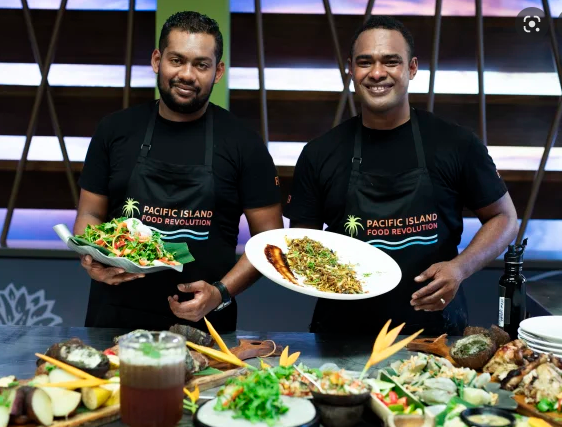
This initiative was presented by Robert Oliver a New Zealand chef, author and television presenter.
The programme has at its heart, the health of people in the Pacific. A major health problem in the Pacific is the number of non-communicable illness’s caused by an unhealthy diet. As people have moved from using traditional foods to highly processed and imported foods people’s health has suffered.
Pacific Food Revolution is working, to reverse this trend, via a Pacific version of Master Chef where contestants from Fiji, Tonga, Samoa and Vanuatu are challenged to show what things can be done using local produce. The show airs regularly on a variety of television channels, attracts a large audience and as research carried out by an Australian Government funded organisation shows, is making a real difference.
Sir Ian Taylor.
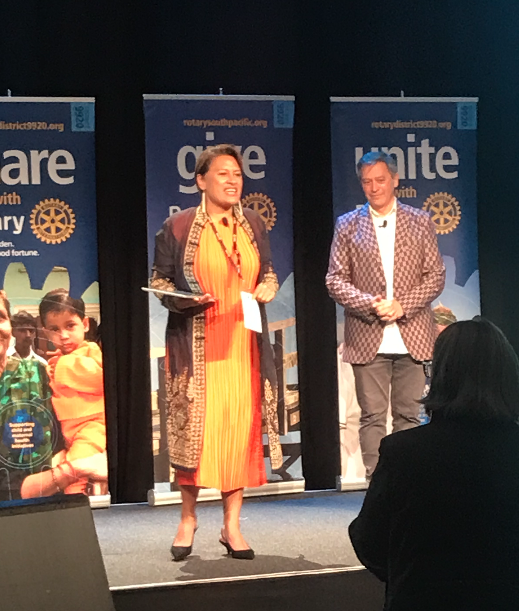
Sir Ian described a life that started in a very ordinary way and which included fronting a rock band, being a television presenter and finally starting Animation Research a company now at the forefront of sports graphics worldwide.
He made a persuasive case for the need for our national story to start with the amazing journeying of our Pasifika and Māori past.
While the feats of the Pasifika migrations across the largest expanse of water in the world finally arriving in NZ, [500 years before Captain Cook] are well recognised internationally, we here in New Zealand often fail to recognise or celebrate that.
Just as that first discovery of NZ was not by accident Sir Ian pivoted to the growth of his company where being nimble, having a strong family value in the company and by valuing the contributions of everyone, made it possible for the company to survive, prosper and grow during the Covid lockdowns.
With their core market, sports, being almost totally restricted by Covid, the company needed to do things differently and very quickly. In a short time, studios were set up and the graphics from events around the world that are so much part of televised sports, were being done in real time from Dunedin. He spoke with justifiable pride about the loyalty of his staff and their ability to make things happen.
A message for success was surround yourself with great people.
Peter Boshier – Chief Ombudsman.
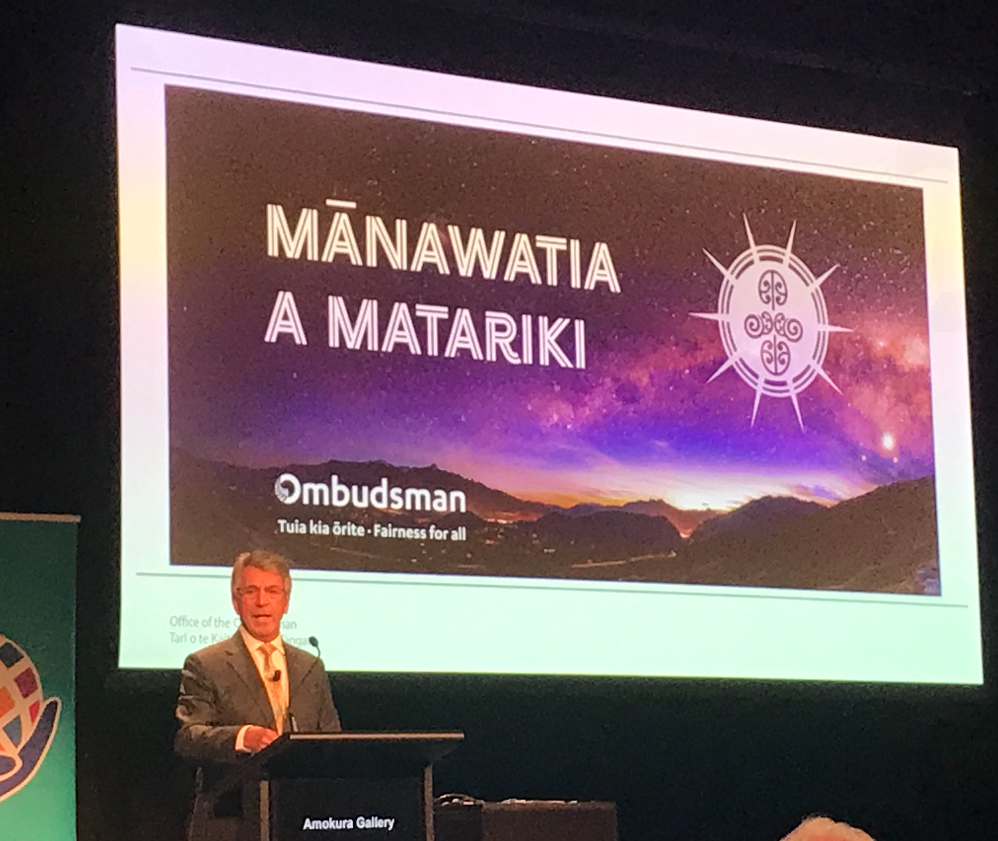
Peter’s title for the role is Kaitiaki Mana Tangata meaning “Guardian of the welfare of the people” The mission for his office being “Tuia Kia Orite” – Fairness for All.
Having been an active Rotarian, Peter was well known by many attendees and was able to reflect on the values of Rotary and that of the Office of Ombudsman. His office has had to change and develop over time and that is also a challenge faced by Rotary. The conference focus on diversity and inclusion is also central to the work of the Ombudsman’s office and reflected in the staff.
NZ was the first country outside Scandinavia to have an ombudsman with the first version of it becoming law in 1962. The role is independent of the government and looks to hold the Government of the day to account in terms of decisions they make. The core jurisdiction of the office is in cases of where the actions of a government agency can be seen to create an injustice . Coverage has been progressively expanded over the years.
A very recent example are the actions taken by the government with respect to the Covid response. In Peter’s words, given the many unknowns and the need to make rapid decisions the issue of how far the government could go was a very fine line and one he recognised as very difficult.
R.I Director Jessie Harman [Zone 8]
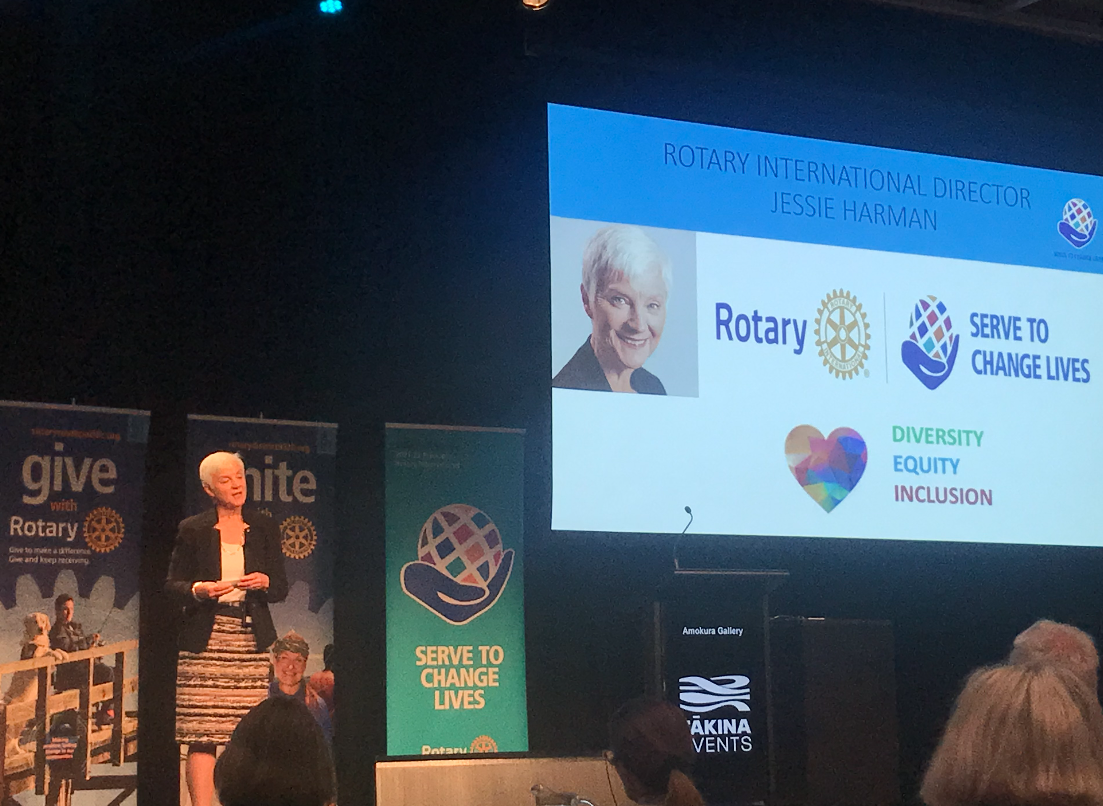 Jessie gave a message of confidence and optimism in an address that would have given attendees a very positive view of the future of Rotary. That future will be significantly different to our past and she spoke of a number of changes.
Jessie gave a message of confidence and optimism in an address that would have given attendees a very positive view of the future of Rotary. That future will be significantly different to our past and she spoke of a number of changes.The first was that women continue to join and from just 20,000 female members in 1989 there are now over 200,000. Women make up 25% of membership, 27% of club presidents and 50% of the Board of Rotary International.
Secondly she spoke of the need for clubs to recognise the importance of diversity, equity and inclusion.
There will also need to be new types of Rotary clubs including satellite clubs, passport clubs and alumni and corporate clubs.
The environment has been added as the seventh area of focus and RI will be increasing the number of environmental projects something that Jessie feels may attract both new partners and new members.
The fifth area of change was the need to be flexible and innovative in how we operate and govern. The way people engage and volunteer is changing and we will need to change and adapt as well.
Rotaract Panel.
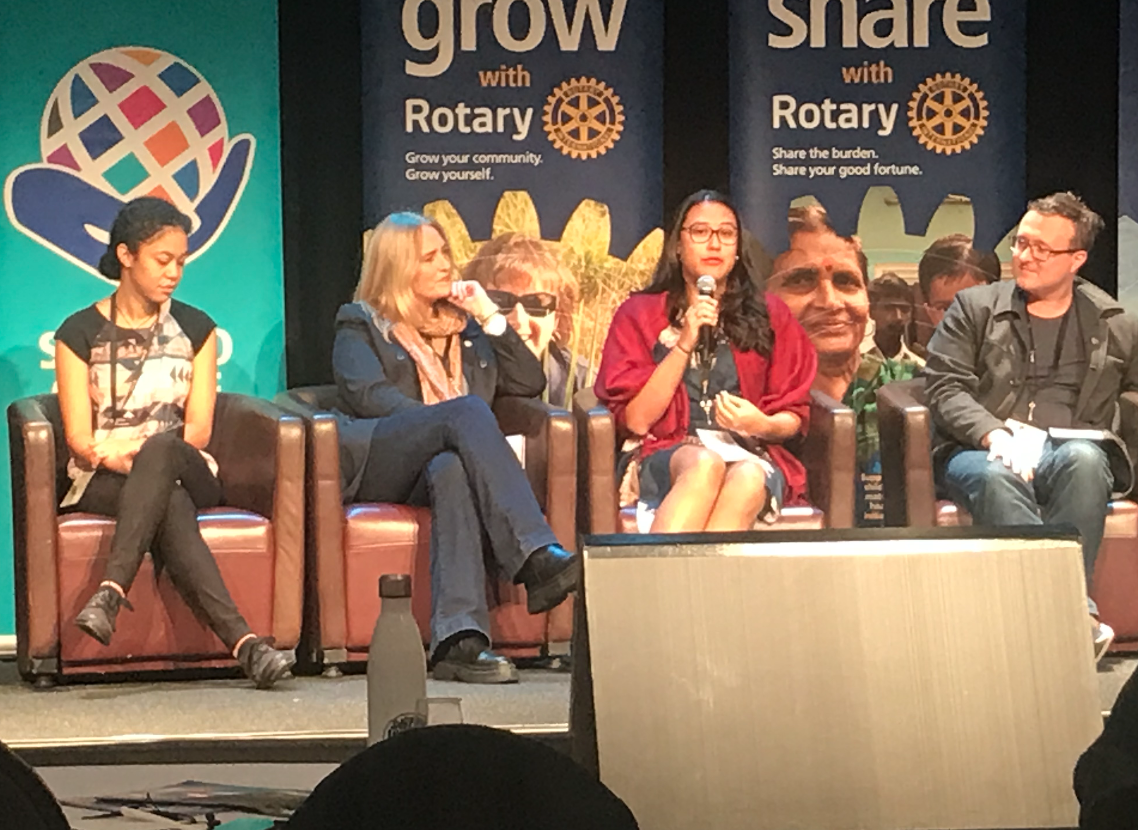
The panel of four gave a message that further confirmed that there are challenges to be met and changes that will need to be made.The first was that Rotaract members do not see themselves as simply Rotarians in waiting and Rotaract Clubs as in some way second to Rotary. The panel were very clear that Rotaract has the ability to attract a more diverse membership and to make a significant contribution to the Rotary movement.
As one panel member said in relation to attracting members , when people look to enter a room or join a group you look for the security that seeing people who look like you and sound like you gives. That means that attracting a new and different membership is difficult for more traditional clubs.
This was part of a message of unconscious bias where people have unconscious forms of bias based on ethnicity, gender, age, and so on. Everyone is susceptible to it and we all have a duty to try and avoid it, but that is not easy as our brains like heuristics [or shortcuts]. Panellists spoke of experiencing conversations where things were said that the speakers simply didn’t recognise were offensive.
On a very positive note they also noted that in a world where there is so much that divides us Rotary has the ability to bring us together.
Don Ha.
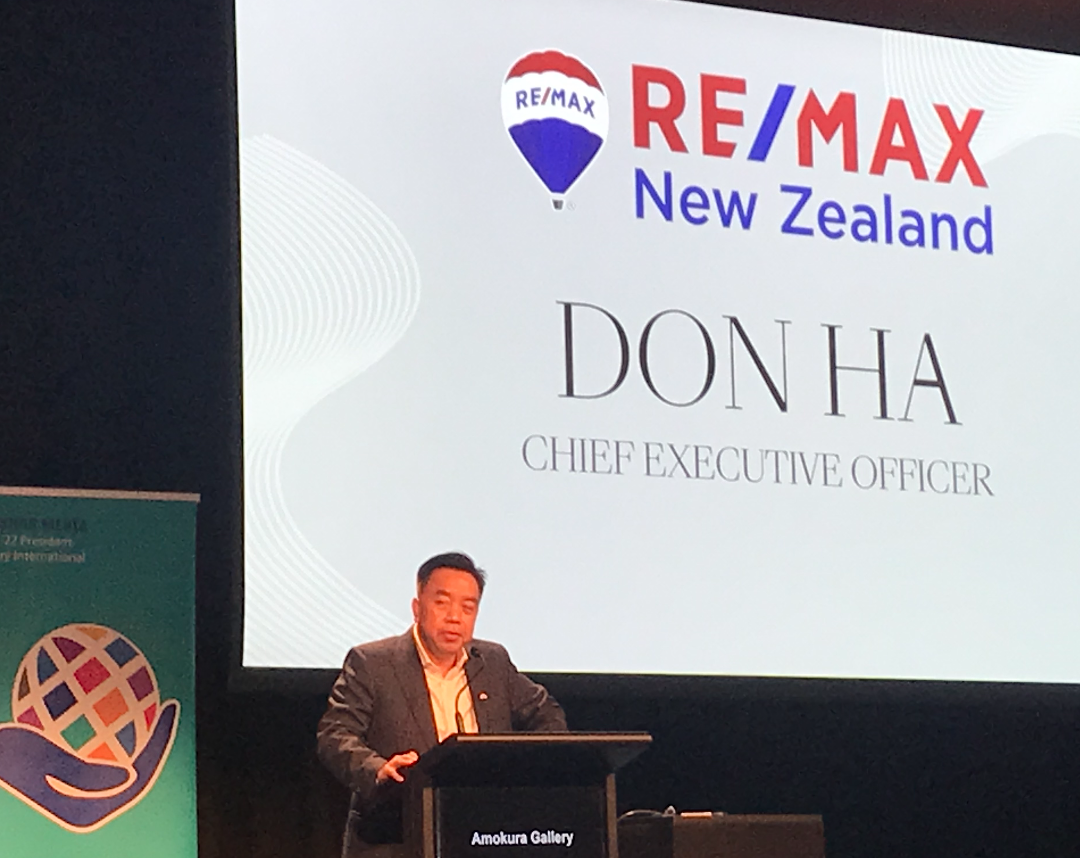
Don, NZ Franchise holder of RE-Max was a sponsor of the conference. His basic message was if we wanted people to join we needed to give them a value proposition – what is in it for them as a member.
Don came to NZ as a refugee when he was twelve years old and has a drive that would wear most people out. From long hours at the Saigon Bakery he moved into real estate, worked 80 hours a week and by 2021 his company was turning over more than $1.2 billion. With the view that “this crisis should not be allowed to stop an entrepreneurial dream” he can see a time of a turn over of $1 billion a month.